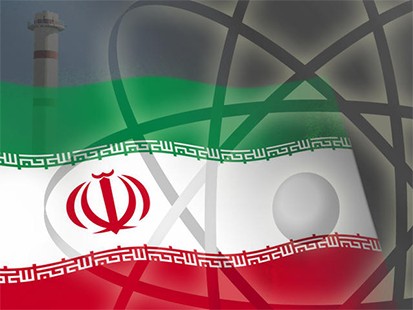The U.S. must continue to pursue a nuclear deal with Iran

By Gregory Waters
The presence of the International Atomic Energy Agency will ensure Iran does not violate the Joint Plan of Action.
Amidst the worst humanitarian crisis to strike the Middle East in at least a century in war ravaged Syria and the rapid gains of the Islamic State, Oman has helped initiate nuclear talks between Iran and the United States, the U.K., France, Germany, Russia and China, known as the P5+1. Closely following this development, Iran reached out to its Gulf neighbors and Saudi Arabia began meeting with Iranian officials. The chance of a détente between the U.S. and Iran, the removal of western sanctions on Iran, and the mending of relations between Iran and Saudi Arabia is one that must not be approached half-heartedly. The current talks hold the promise of drastically rearranging Middle East relations: ending proxy wars between Saudi Arabia and Iran, allowing collaboration between Iran and the U.S. on Assad and the Islamic State, and providing the U.S. with a new stable, economically and militarily powerful ally in the region.
There are three options in dealing with the threat of a nuclear Iran: 1) do nothing and hope that sanctions put enough pressure on the government to stop pursuing any nuclear program, 2) use military force to destroy the facilities, or 3) negotiate a deal that allows Iran to pursue nuclear energy for peaceful purposes while allowing for international oversight. Relying solely on sanctions provides no means for the international community to ensure Iran does not develop nuclear weapons. Sanctions will only continue to cripple their economy, causing unrest and increased animosity between Iran and the West. Military intervention is almost guaranteed to lead to war and attacks on Israeli and U.S. targets and risks the disintegration of Iran. Diplomacy is the only option.
The nuclear talks have been promising so far, yet also pose a severe risk of failure due to each nation’s domestic politics. President Obama and the Republican Party are incapable of agreeing on anything out of practice. Leading republicans attack Obama and the State Department for taking too weak a stance in the nuclear talks, leaving Obama and Secretary of State John Kerry to defend the talks and blame Iran for being too rigid. In Iran, President Rouhani must balance his moderate agenda with the still powerful force of the conservative politicians and take a hard public stance against the U.S. Unfortunately, many commentators on the nuclear talks seem to be relying solely on the press releases of politicians for insight into how the talks are progressing. But the rhetoric from all sides cannot be reported as facts, because the fact is a great deal of progress has been made.
According to a Brookings Arms Control and Non-Proliferation Initiative hosted discussion held on 25 November 2014, the major points of contention revolve around Iran continuing its enrichment program and maintaining all existing centrifuges. Five percent enriched uranium is required for nuclear energy, twenty percent enriched uranium is needed for research, and ninety percent enriched uranium is used for weapons. Iran has never exceeded twenty percent enrichment, which it claims it needs for research and is allowed to have under international law.
The latest International Atomic Energy Agency (IAEA) report, which was derestricted on 20 November 2014, states that Iran has not enriched uranium above five percent in any of its facilities since the Joint Plan of Action (JPA) took effect. In addition, Iran has removed its entire stock of twenty percent enriched uranium through downblending.
By downblending all of their twenty percent enriched uranium, effectively eliminating any possibility of R&D, Iran has shown remarkable good faith towards the talks. Furthermore, the IAEA reports that “Iran continues to provide the Agency with regular managed access to centrifuge assembly workshops, centrifuge rotor production workshops and storage facilities.” IAEA oversight should make Iran’s insistence on maintaining all existing centrifuges a non-issue.
Other commentators have raised concerns over the use of the IR-40 reactor at the Arak facility for creating weapons grade plutonium, accusing Iran of attempting to upgrade its reactor. However, the IAEA report explicitly states that “No additional major components have been installed at the IR-40 Reactor and there has been no manufacture and testing of fuel for the reactor”. IAEA oversight of Iranian facilities will ensure that Iran makes no major breaks from the JPA and should put U.S. fears to rest.
The importance of the Iran nuclear talks cannot be overstated. The Middle East needs a diplomatic win, and the removal of the threat of a nuclear Iran and western sanctions can lead to U.S. and Iranian cooperation on several fronts: the Islamic State, Syria’s eventual reconstruction, and Iraq’s coherence. These regional challenges require regional solutions and the participation of all major players in the Arab world. Without Iran, the U.S. cannot hope to resolve any of these conflicts. It is time to put the petty politics aside, ignore the rhetoric coming from all directions, and commit to a nuclear deal with Iran.




